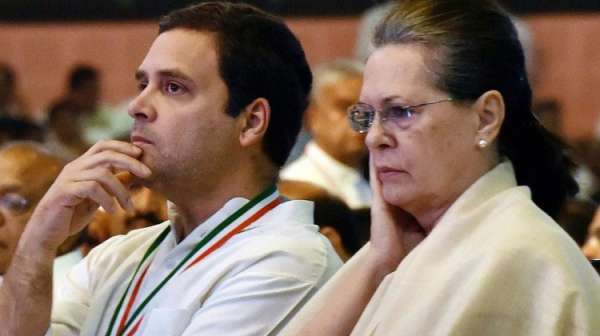Amit Malviya hits back at Rahul Gandhi, says Chidambaram responsible for Yes Bank mess

Yes Bank crisis: Amit Malviya said former Finance Minister P Chidambaram is the one who should be blamed for the “mess” Indian banks and the economy are in today.
The RBI has put Yes Bank under a moratorium and imposed limits on monthly withdrawal that can be made per account.
Moments after former Congress president Rahul Gandhi attacked the Narendra Modi government and held it responsible for “destroying Indian economy” by citing the latest Yes Bank crisis, BJP leader and the party’s national IT in-charge Amit Maviya said it is the Congress that is responsible for this current crisis.
In a tweet, Rahul Gandhi said, “No Yes Bank. Modi and his ideas have destroyed India’s economy. #NoBank.”
No Yes Bank.
#NoBank
Rahul Gandhi (@RahulGandhi) March 6, 2020
Hitting back at Rahul Gandhi, Amit Malviya said senior Congress leader and former Finance Minister P Chidambaram is the one who should be blamed for the “mess” Indian banks and the economy are in today.
“No Rahul, it is P Chidambaram, your former finance minister, who is responsible for the mess India’s banks and economy are in,” Amit Malviya said in a tweet.
No Rahul, it is P Chidambaram, your former finance minister, who is responsible for the mess India’s banks and economy are in…
Don’t take my word for it. Listen to your former ally. https://t.co/zSeOIDYvGy pic.twitter.com/T1Mfq3iiNB
Amit Malviya (@amitmalviya) March 6, 2020
To buttress his charges, Amit Malviya also attached a video post of former Samajwadi Party leader Amar Singh, whom Malviya introduced as a former Congress ally. In the video, Amar Singh says non-performing assets (NPAs) of banks piled up due to the policies adopted by P Chidamabaram when he was India’s finance minister. Singh is also heard claiming that he has evidence of various wrongdoings on part of Chidamabaram to support his charge.
However, neither Amar Singh nor Amit Malviya put on record any of these so-called evidences.
Earlier in the day, P Chidambaram too hit out at the Modi government and said its ability to govern and regulate India’s financial instutions stand exposed in wake of the Yes Bank crisis and the recent fraud at PMC Bank.
BJP has been in power for six years. Their ability to govern and regulate financial institutions stands exposed. First, it was PMC Bank. Now it is YES Bank. Is the government concerned at all? Can it shirk its responsibility?
Is there a third bank in the line?
- Chidambaram (@PChidambaram_IN) March 6, 2020
THE YES BANK CRISIS
On Thursday, in an emergency measure, the Reserve Bank of India put Yes Bank under moratorium and imposed a withdrawal cap of Rs 50,000 per account per month. The RBI has however allowed some relief in case of weddings and other functions.
The RBI said this move was necessary because of a serious deterioration in Yes Bank’s financial position and that it would swiftly work on a revival plan.
The RBI said it had been left with no option but to ask the government to impose a moratorium. It however assured depositors that there was no need to panic and that their interests would be taken care of.
“The financial position of Yes Bank… has undergone a steady decline largely due to inability of the bank to raise capital to address potential loan losses and resultant downgrades,” the RBI said in a statement.
In a notification ordering the moratorium, the government said that all actions and proceedings against the bank would be stayed and capped most withdrawals at Rs 50,000 until April 3. The government also ordered the bank not to pay more than 50,000 rupees to most creditors.
Yes Bank has struggled to raise capital it needs to stay above regulatory requirements as it battles high levels of bad loans.
It has been trying to raise $2 billion in fresh capital since late last year, and in February delayed its December-quarter results.
In January, the bank said it had rejected a $1.2 billion investment offer from Canadian investor Erwin Singh Braich and Hong Kong-based SPGP Holdings — an offer about which many analysts had expressed doubt.
On Thursday, Yes Bank shares surged more than 25% after reports emerged that a group led by SBI would inject capital into the bank.



